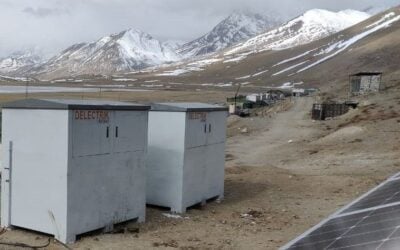
UK utility SSE has put £100 million (US$123 million) into its Coire Glas pumped hydro project in Scotland for pre-construction activities, but said that new policy is needed for it go to final investment decision (FID).
SSE has confirmed it will allocate £100 million in capital to boost Coire Glas – a Scottish-based pumped hydro energy storage (PHES) project with the potential to be the “biggest” in 40 years.
Situated near Loch Lochy, between Fort William and Inverness, the Coire Glas project could more than double Britain’s total current electricity storage capacity and would require a capital investment of over £1.5 billion to construct.
The project would be capable of delivering 30GWh of long duration storage, though SSE said its estimated 2031 completion date is “…subject to positive development progress and prevailing policy environment”.
Try Premium for just $1
- Full premium access for the first month at only $1
- Converts to an annual rate after 30 days unless cancelled
- Cancel anytime during the trial period
Premium Benefits
- Expert industry analysis and interviews
- Digital access to PV Tech Power journal
- Exclusive event discounts
Or get the full Premium subscription right away
Or continue reading this article for free
Announcing the £100 million funding, Gregor Alexander, finance director at SSE, was more specific: “Whilst Coire Glas doesn’t need subsidy, it does require more certainty around its revenues and it is critically important the UK government urgently confirms its intention on exactly how they will help facilitate the deployment of such projects.”
The need to change the UK’s electricity market to create the right signals for large flexibility and long-duration energy storage (LDES) assets was a talking point at the Energy Storage Summit in London last month. In one panel discussion, Robert Hull of Riverswan Energy Advisory said of the UK’s many PHES projects:
“The market signals are just not there for large flexibility assets. They are ready to go but can’t because of the way the market is designed.”
SSE hopes to make a final investment decision on Coire Glas in 2024. Excess energy would be taken from the grid to pump water 500 metres up a hill from the Loch to a upper reservoir similar in size to around 11,000 Olympic-sized swimming pools. When required, this water would then be released to power the grid when intermittent energy generation capacity, such as solar and wind, is low and demand is high.
Michael Matheson, net zero and energy secretary for the Scottish government, agreed that the market needs to change for the PHES sector to grow:
“The Scottish government has long been supportive of pumped hydro storage capacity, which we believe will play a key role in the energy transition and is a vital component of a more flexible, resilient and secure electricity supply.”
“However, it is critical that the UK government puts in place the appropriate market and regulatory arrangements to support the industry’s development as a matter of urgency. Only with a supportive policy environment can this sector realise its full potential.”
Additional reporting by George Hynes from Solar Power Portal.





